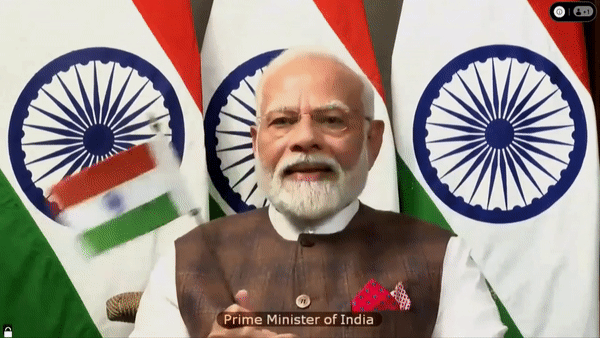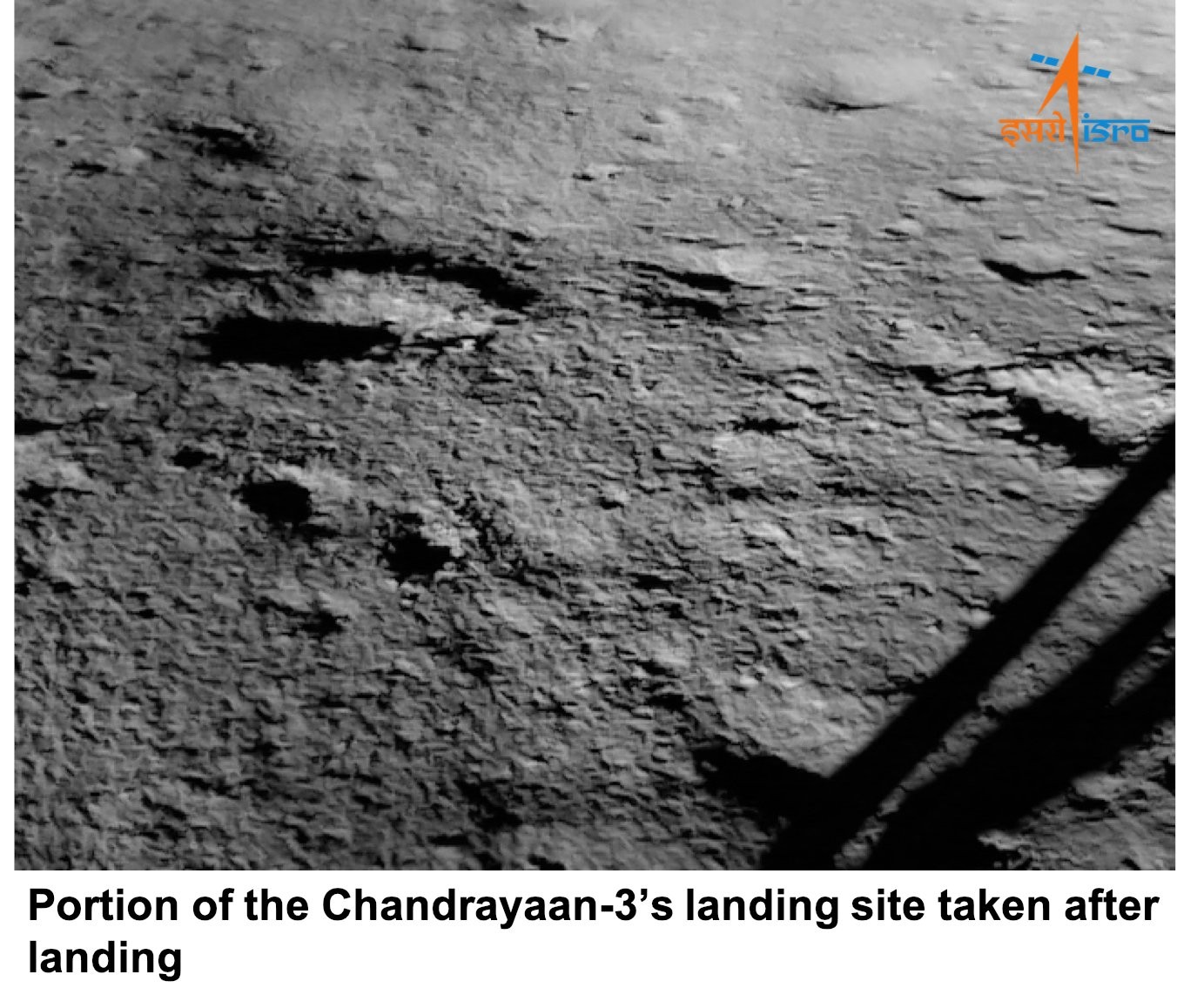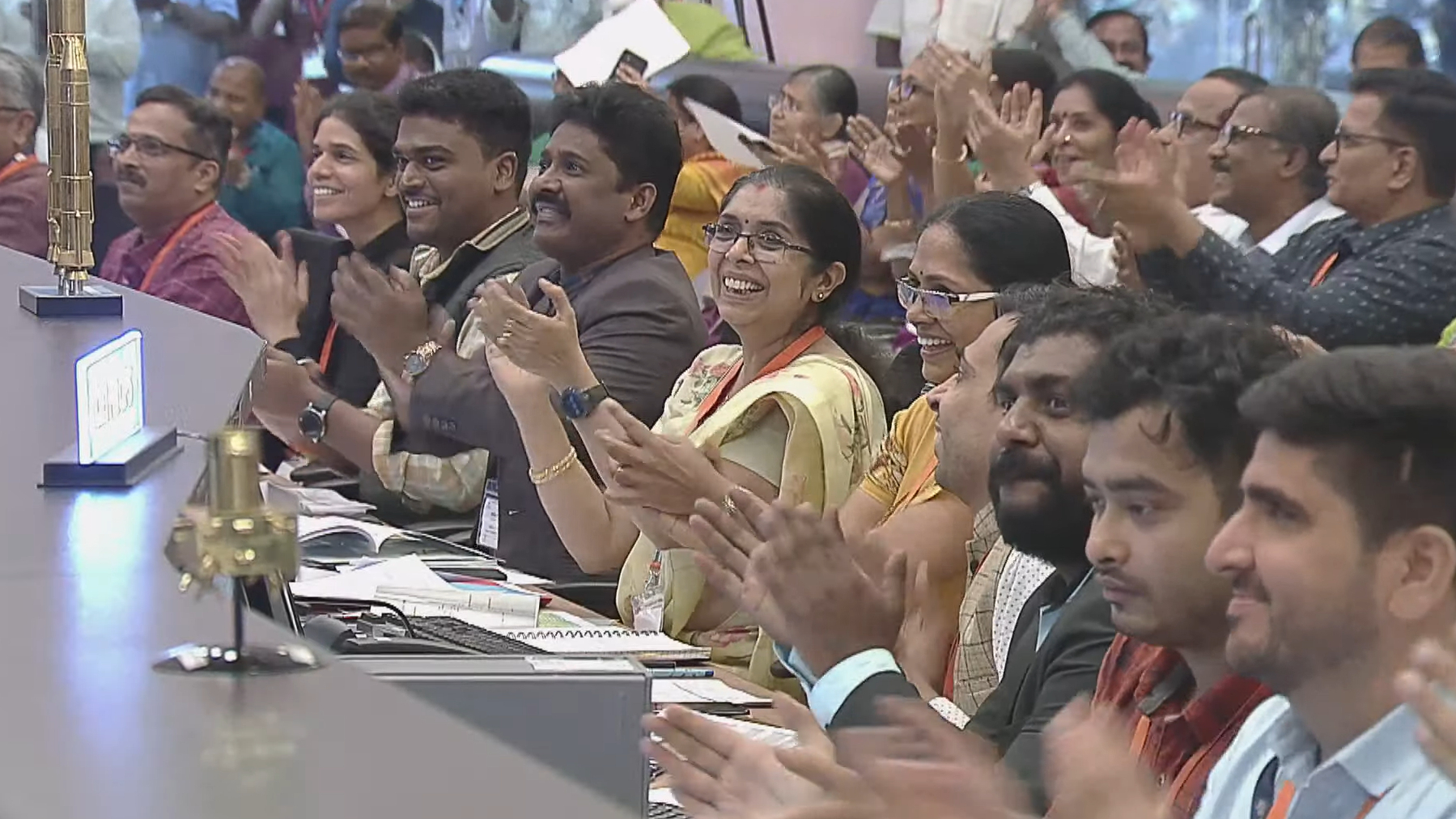India's successful Chandrayaan-3 moon landing 'belongs to all of humanity,' Prime Minister Modi says
"We can all aspire to the moon and beyond."
Indian Prime Minister Narendra Modi is over the moon.
That's because his country is now on the moon. India became the fourth nation to make a soft landing on the moon today (Aug. 23) when its Chandrayaan-3 mission successfully touched down near the lunar south pole. India now joins China, the former Soviet Union and the United States on the list of countries who have made a controlled landing on the surface of the moon.
"This success belongs to all of humanity and it will help moon missions by other countries in the future," Modi said in a speech following Chandrayaan-3's successful landing. "I'm confident that all countries in the world, including those from the global south, are capable of capturing success. We can all aspire to the moon and beyond."
Related: India on the moon! Chandrayaan-3 becomes 1st probe to land near lunar south pole

In his speech, Modi also stressed that this milestone reflects on all of humanity, not just India. "Friends, on this joyous occasion, I would like to address all the people of the world. The people of every country and region," Modi said. "India's successful moon mission is not just India's alone.
"Our approach of one Earth, one family, one future is resonating across the globe. This human-centric approach that we present and that we represent has been welcomed universally. Our moon mission is also based on the same essential approach."

ISRO chairman Sreedhara Somanath shared some words as well, praising mission teams that made this landing a success. "It's a great moment of happiness on behalf of the team. It gives me immense satisfaction on achieving this goal as project director of this mission," Somanath said. "The entire mission operations right from launch 'til landing happened flawlessly as per the timeline. And we became the fourth country to land — to demonstrate the soft landing — onto the moon's surface and we became the first country to go near the south pole of the moon."
Get the Space.com Newsletter
Breaking space news, the latest updates on rocket launches, skywatching events and more!

Praise from international space agency leadership is already pouring in on social media. In a post on X (formerly known as Twitter), NASA administrator Bill Nelson lauded the landing. "Congratulations ISRO on your successful Chandrayaan-3 lunar South Pole landing!" Nelson wrote in the post. "And congratulations to India on being the 4th country to successfully soft-land a spacecraft on the moon. We’re glad to be your partner on this mission!"
European Space Agency (ESA) Director General Josef Aschbacher stated he was impressed by ISRO's achievement in a post on X. "Incredible! Congratulations to ISRO, Chandrayaan-3, and to all the people of India!!" Aschbacher wrote in the post. "What a way to demonstrate new technologies AND achieve India's first soft landing on another celestial body. Well done, I am thoroughly impressed."
Aschbacher also highlighted ESA's involvement in the mission. The agency provided ground station support from its facilities in French Guiana, Australia and the United Kingdom, according to an ESA statement.
The Chandrayaan-3 mission saw a lander, known as Vikram, make a soft landing near the moon's south pole close to the same location Russia's failed Luna-25 mission was aiming for. If all goes according to plan, Vikram will deploy a solar-powered rover named Pragyan in order to study lunar soil and moon rocks. Vikram, meanwhile, will conduct lunar seismic studies and probe the moon's soil to measure its temperature.
Both Vikram and Pragyan are expected to last one lunar day, which is about 14 Earth days. When the sun finally sets on the duo, their batteries will slowly deplete, bringing an end to India's historic mission.
Join our Space Forums to keep talking space on the latest missions, night sky and more! And if you have a news tip, correction or comment, let us know at: community@space.com.

Brett is curious about emerging aerospace technologies, alternative launch concepts, military space developments and uncrewed aircraft systems. Brett's work has appeared on Scientific American, The War Zone, Popular Science, the History Channel, Science Discovery and more. Brett has English degrees from Clemson University and the University of North Carolina at Charlotte. In his free time, Brett enjoys skywatching throughout the dark skies of the Appalachian mountains.









